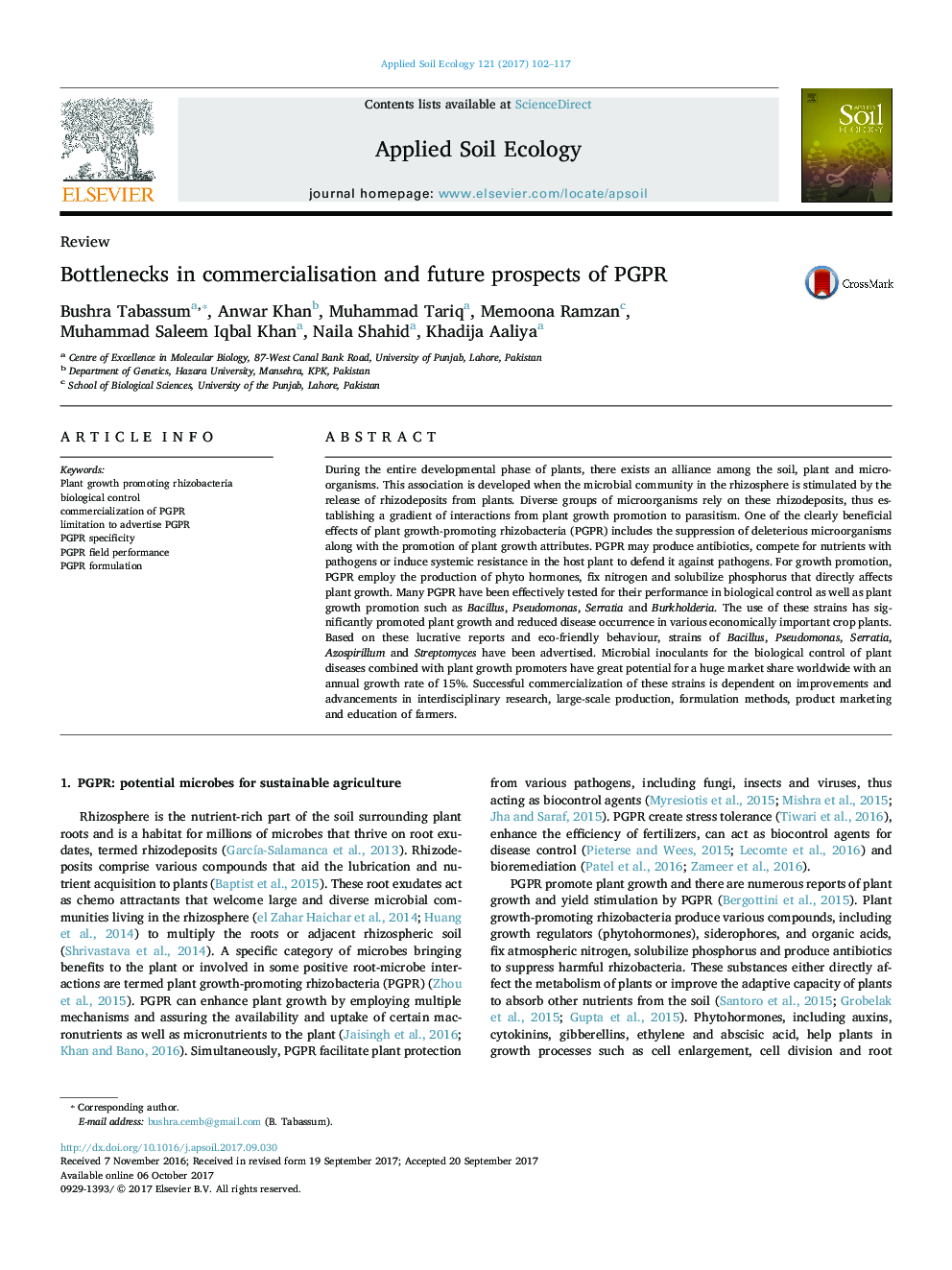| کد مقاله | کد نشریه | سال انتشار | مقاله انگلیسی | نسخه تمام متن |
|---|---|---|---|---|
| 5742549 | 1617763 | 2017 | 16 صفحه PDF | دانلود رایگان |

- Process of commercialization of PGPR starting from strain selection to formulation is outlined.
- A detailed and comprehensive list of bottlenecks in commercialization of PGPR is discussed.
- For effective utilization of PGPR at commercial scale, technical improvements have been proposed.
- Currently available commercial PGPR formulations across the globe are documented.
During the entire developmental phase of plants, there exists an alliance among the soil, plant and microorganisms. This association is developed when the microbial community in the rhizosphere is stimulated by the release of rhizodeposits from plants. Diverse groups of microorganisms rely on these rhizodeposits, thus establishing a gradient of interactions from plant growth promotion to parasitism. One of the clearly beneficial effects of plant growth-promoting rhizobacteria (PGPR) includes the suppression of deleterious microorganisms along with the promotion of plant growth attributes. PGPR may produce antibiotics, compete for nutrients with pathogens or induce systemic resistance in the host plant to defend it against pathogens. For growth promotion, PGPR employ the production of phyto hormones, fix nitrogen and solubilize phosphorus that directly affects plant growth. Many PGPR have been effectively tested for their performance in biological control as well as plant growth promotion such as Bacillus, Pseudomonas, Serratia and Burkholderia. The use of these strains has significantly promoted plant growth and reduced disease occurrence in various economically important crop plants. Based on these lucrative reports and eco-friendly behaviour, strains of Bacillus, Pseudomonas, Serratia, Azospirillum and Streptomyces have been advertised. Microbial inoculants for the biological control of plant diseases combined with plant growth promoters have great potential for a huge market share worldwide with an annual growth rate of 15%. Successful commercialization of these strains is dependent on improvements and advancements in interdisciplinary research, large-scale production, formulation methods, product marketing and education of farmers.
Journal: Applied Soil Ecology - Volume 121, December 2017, Pages 102-117